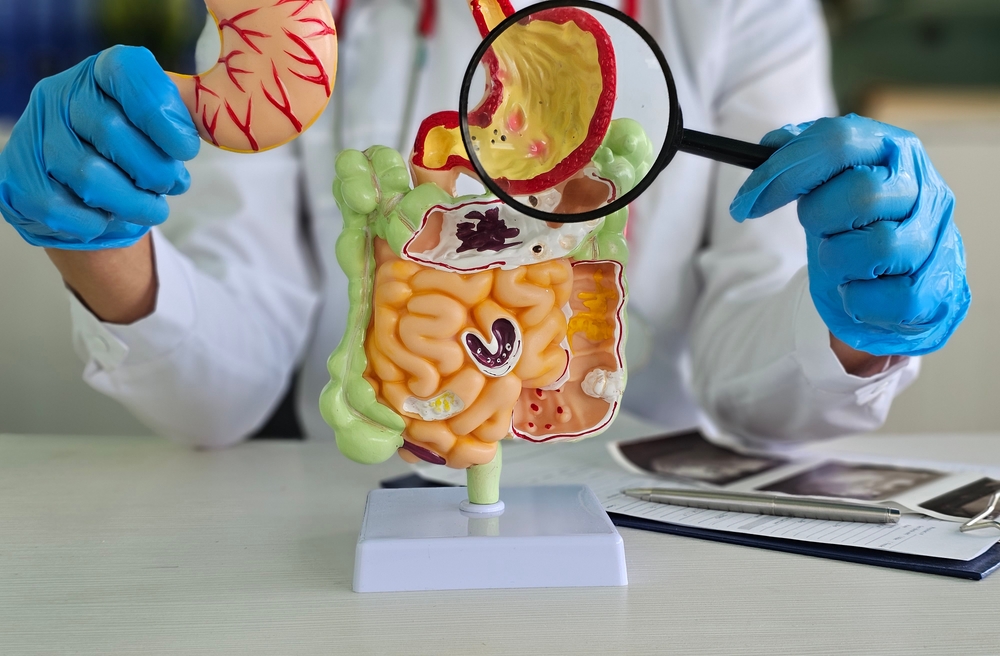Every year, the month of May is dedicated to raising awareness about Inflammatory Bowel Disease (IBD), a group of chronic conditions that affect millions of people worldwide. IBD Awareness Month is an opportunity to shed light on the challenges faced by those living with IBD, including Crohn’s disease and ulcerative colitis. At Pacific Arthritis, we understand that IBD is not just about digestive issues—it can also impact the joints and overall well-being. In this blog, we’ll explore what IBD is, its symptoms, treatment options, and ways to support individuals living with this complex condition.
What is IBD?
Inflammatory Bowel Disease (IBD) is a term used to describe chronic inflammatory conditions of the gastrointestinal (GI) tract. The two main types of IBD are:
- Crohn’s Disease: This type of IBD can affect any part of the GI tract, from the mouth to the anus, and often affects the entire thickness of the bowel wall. It may also cause patchy areas of inflammation, meaning some parts of the GI tract may be inflamed while other areas remain healthy.
- Ulcerative Colitis (UC): Unlike Crohn’s disease, UC is limited to the colon (large intestine) and rectum. It typically affects only the innermost lining of the colon, causing continuous inflammation and ulceration.
While Crohn’s disease and ulcerative colitis differ in their manifestations, both conditions can cause severe symptoms and significantly impact an individual’s quality of life.
Symptoms of IBD
The symptoms of IBD can vary depending on the type and severity of the disease. Common symptoms include:
- Abdominal Pain and Cramping: Chronic inflammation in the GI tract can cause severe abdominal discomfort and cramping.
- Diarrhea: Persistent diarrhea, often with blood, is a common symptom of both Crohn’s disease and ulcerative colitis.
- Fatigue: Chronic inflammation, nutrient malabsorption, and frequent trips to the bathroom can lead to overwhelming fatigue.
- Weight Loss: Inflammation can interfere with the body’s ability to absorb nutrients, leading to unintended weight loss.
- Rectal Bleeding: Inflammation and ulcers in the GI tract can cause bleeding during bowel movements.
- Reduced Appetite: Pain, discomfort, and digestive issues can reduce appetite and lead to malnutrition.
- Joint Pain: In addition to GI symptoms, many people with IBD experience joint pain and inflammation, which can significantly impact their mobility and comfort.
The Importance of IBD Awareness Month
IBD Awareness Month serves several critical purposes:
1. Raising Awareness and Understanding:
Many people are unaware of the challenges faced by those with IBD. Increased awareness can lead to greater empathy, support, and improved quality of life for individuals living with the disease.
2. Encouraging Early Diagnosis:
IBD can be challenging to diagnose, especially in its early stages, as symptoms may mimic other GI disorders. Awareness campaigns can help individuals recognize symptoms and seek medical attention sooner.
3. Advocating for Research and Better Treatments:
Increased awareness and support can lead to greater investment in research, paving the way for more effective treatments and, ultimately, a cure.
4. Reducing Stigma:
IBD often involves symptoms that are difficult to discuss, such as diarrhea and abdominal pain. Raising awareness can help reduce the stigma and foster an open dialogue about the challenges faced by individuals with IBD.
Treatment Options for IBD
While there is currently no cure for IBD, various treatments can help manage symptoms, reduce inflammation, and improve quality of life. The treatment approach is tailored to the individual and may include:
1. Medications:
- Anti-Inflammatory Drugs: These include aminosalicylates and corticosteroids, which help reduce inflammation in the GI tract.
- Immunosuppressants: Medications like azathioprine and methotrexate work by suppressing the immune system’s response.
- Biologics: Biologic therapies target specific parts of the immune system to reduce inflammation and prevent flare-ups.
- Antibiotics: In some cases, antibiotics may be used to treat or prevent infections.
2. Diet and Nutrition:
A balanced diet tailored to an individual’s needs can help manage symptoms and prevent nutritional deficiencies. Working with a dietitian is often recommended for people with IBD.
3. Lifestyle Modifications:
Managing stress, getting regular exercise, and maintaining a healthy sleep routine can help reduce the impact of IBD symptoms.
4. Surgery:
In severe cases, surgery may be necessary to remove damaged parts of the GI tract or to address complications.
How Pacific Arthritis Can Help
At Pacific Arthritis, we recognize that IBD is not just a gastrointestinal issue—it can have far-reaching effects on the entire body, including the joints. Our team of specialists works collaboratively to provide comprehensive care that addresses the unique needs of each patient. We offer:
- Personalized Treatment Plans: We tailor our treatment approaches to each patient’s needs, considering their IBD symptoms, joint health, and overall well-being.
- Multidisciplinary Care: Our team includes rheumatologists, gastroenterologists, and other specialists to provide holistic care for individuals with IBD.
- Support and Education: We believe that informed patients are empowered patients. We provide educational resources and support to help patients understand their condition and make informed decisions about their care.
Supporting IBD Awareness
You can help raise awareness and support individuals living with IBD in several ways:
- Share Information: Use social media to share facts and personal stories about IBD.
- Participate in Events: Join local walks, fundraisers, or virtual events to support IBD awareness and research.
- Be an Advocate: Advocate for better healthcare policies and support for those with chronic illnesses.
Conclusion
IBD Awareness Month is an important opportunity to bring attention to the challenges faced by those living with inflammatory bowel disease and to promote greater understanding, support, and advocacy. At Pacific Arthritis, we are committed to providing comprehensive care and support for individuals with IBD, helping them manage their symptoms and live their lives to the fullest. If you or a loved one are affected by IBD and need expert care, please contact our offices in Los Angeles or Santa Monica at (310) 297-9221 to schedule a consultation. Together, we can make a difference in the lives of those living with IBD.




